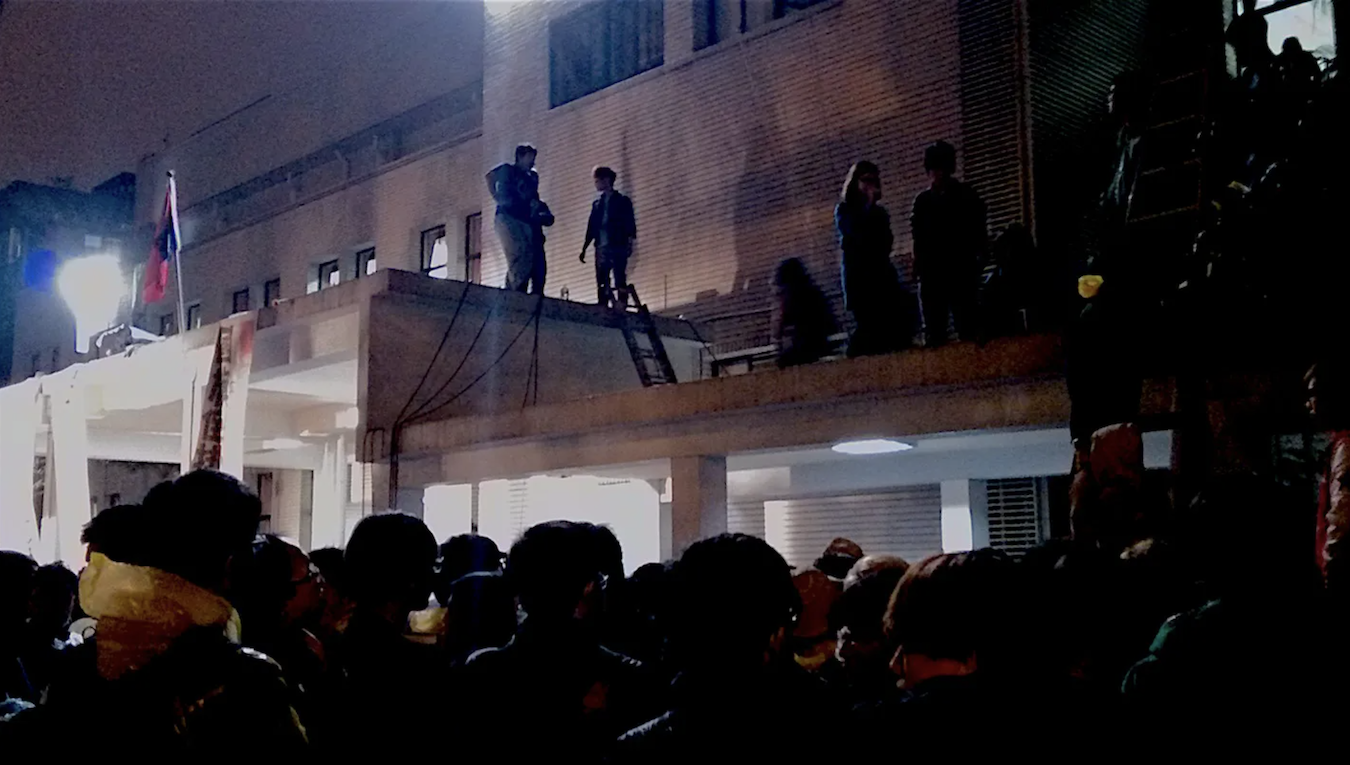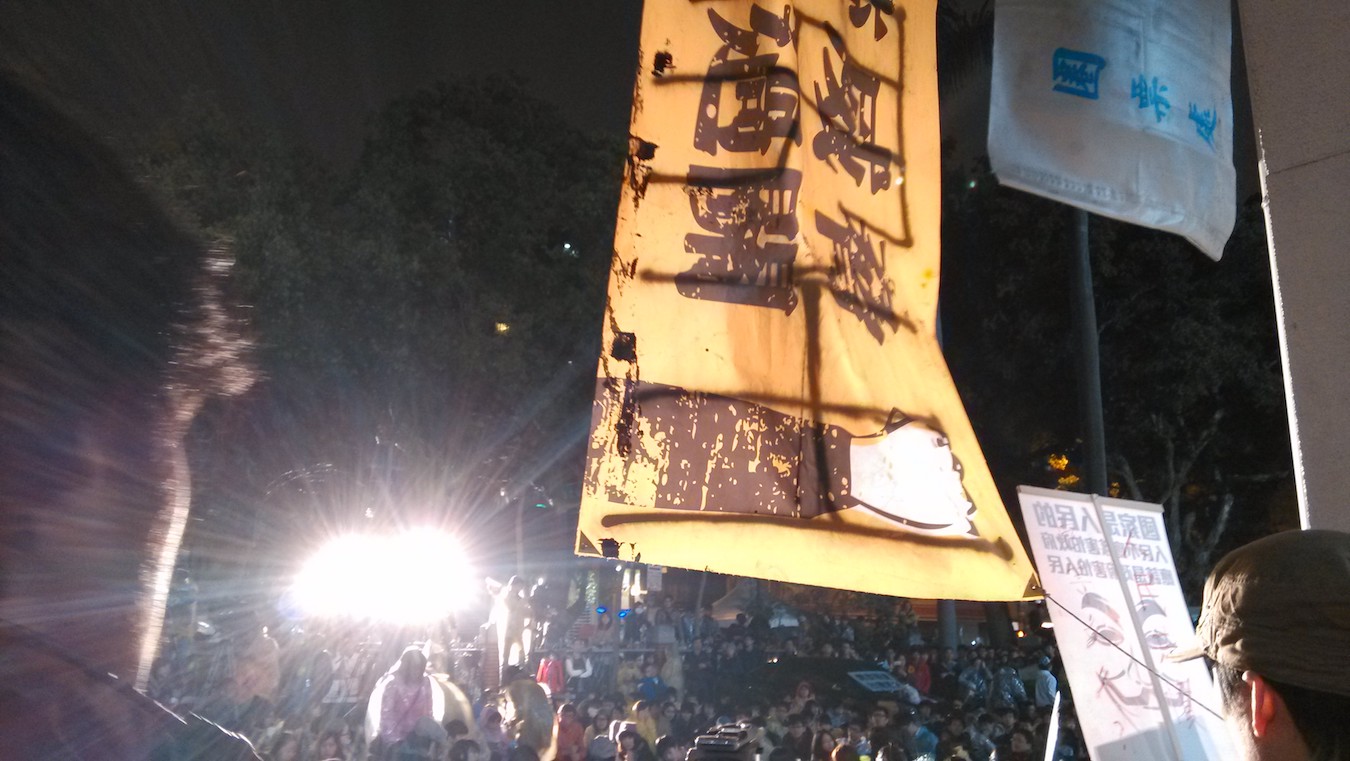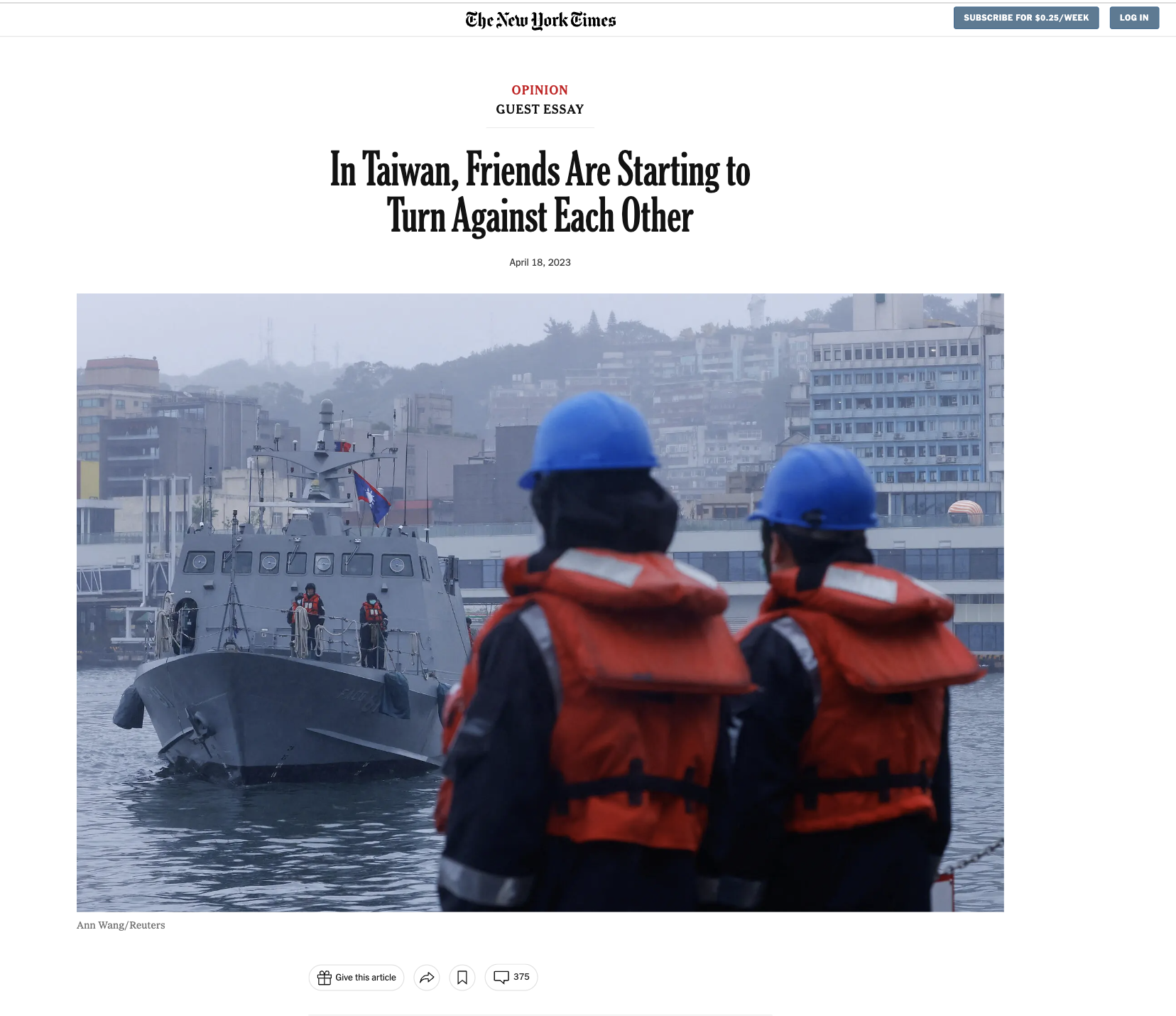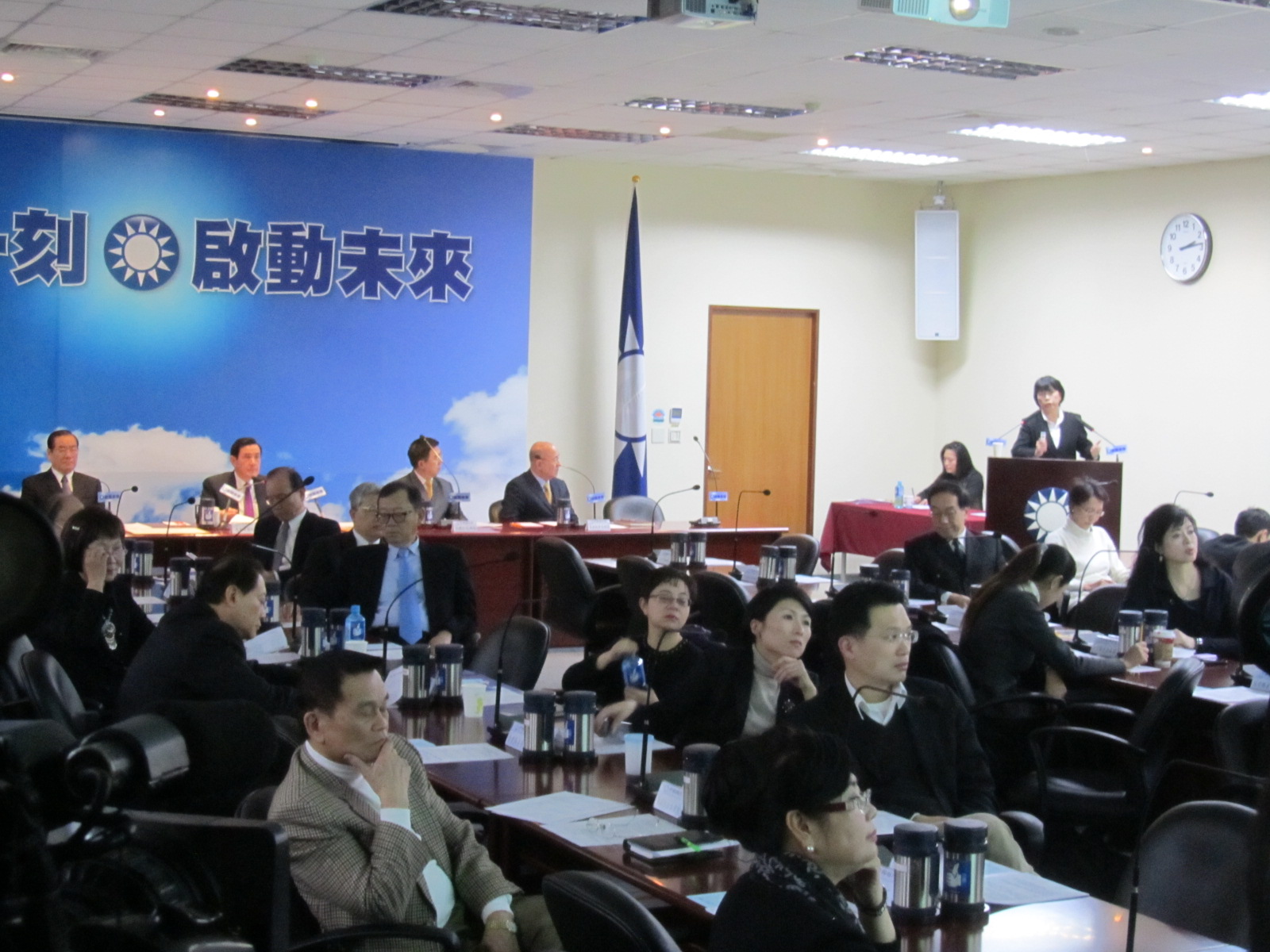by Brian Hioe
語言:
English
Photo Credit: Screenshot
AN OP-ED PUBLISHED in the New York Times today by the former Ma administration Minister of Culture Lung Yingtai proves typical in its delusion. After all, despite a history of criticizing the KMT’s authoritarian rule as a writer during the authoritarian period, Lung later saw fit to join an administration led by that same party–never mind the party’s refusal to make amends for the tens of thousands it killed during the White Terror and its contemporary aims to trade off Taiwan’s democratic freedoms to China, at the expense of the futures of its young people. This was likely due to Lung’s cultural identification with China, as a descendant of those who came to Taiwan with the KMT.
No surprise, then, that the young people would stand up against Lung and the pro-China policies advanced by the Ma administration in the form of the 2014 Sunflower Movement, including individuals who like Lung were descended from the “waishengren” that came to Taiwan only after the Chinese Civil War. But, for Lung, apparently, it is only that Taiwan has only become divided in the present, with “ friends starting to turn against each other” as the title of the article goes. Never mind that for decades the KMT tried to force its view of Taiwan as China onto those who are Indigenous or are from prior waves of migration to Taiwan, when Chinese dynasties historically never controlled all of geographic Taiwan and Taiwan was a province of the Qing for a mere seven years. In this sense, Taiwan has always been divided, and Lung is only acting as though such divides are new to grandstand for an international audience about the views of her party.
Lung Ying-tai delivering a speech at the KMT’s standing committee meeting in 2012. Photo credit: 張佩芝/VOA/Public Domain
“Friends […] turn[ing] on each other] proves even more of an ironic statement when under the KMT’s authoritarianism, friends informed or were forced to inform on each other during the KMT’s decades of one-party rule known as the White Terror. This is precisely the future that Taiwan faces again if it is invaded by China and loses its hard-won democratic freedoms to China.
But Lung nonetheless touts Taiwan’s contemporary democratic freedoms as an accomplishment in the op-ed, stating that “we [are] proud of the vibrant democracy and economic success”. Lung acts as though she herself did not eventually side with the former authoritarian party—and suggests that outreach to China rather than readiness to stave off a potential invasion will be what brings peace. Lung should know better–her own books have been banned by the CCP in China.
This is not at all true. A mere meeting between the democratically elected Taiwanese president and other political leaders causes days of Chinese live-fire drills directed at Taiwan. Nor is it as though Taiwan and the current Tsai administration have not sought outreach, with current president Tsai Ing-wen stating that she would, in fact, be willing to meet with Chinese President Xi Jinping if this were to take place on an equal basis. Instead, China responds with the threat of military force. A recent visit to China by former President Ma Ying-jeou of the KMT did not deter military exercises by China either.
Lung, of course, seeks to frame the Ma administration that she served under as open to dialogue in a way that the Tsai administration was not, and in this way seeks to pin blame on the Tsai administration for stoking tensions. She aims for the heartstrings in her article by citing the plight of Taiwanese farmers who have had their goods shut out from the Chinese market because of worsening cross-strait relations, quoting a farmer friend referred to as “Mr. Pan.”
This proves further ironic, seeing as farmers have faced retaliation from the KMT for decades if they ever broke from it by voting for any party other than the KMT. Namely, farmers feared being shut out of the agricultural distribution organizations needed for their goods to make it to market or having their fields literally dry up because of punishment from KMT-controlled irrigation associations. China’s actions in punishing Taiwanese farmers not only find parallels in the past actions of the KMT, but may be aimed to pressure them because of this history.

The outbreak of the Sunflower Movement in March 18, 2014. Photo credit: Brian Hioe
More generally, Lung seems to try and act as if the 2014 Sunflower Movement–the student-led occupation of the Taiwanese legislature that was by some counts the largest social movement in Taiwanese history–never took place. Lung states that “We have lived in China’s shadow for more than 70 years, shaping who we are.” But the Taiwanese public rose up in 2014 in rejection of the Ma administration’s trade policies she touts in the article, with the view that these economic policies would deteriorate Taiwan’s democratic freedoms if China used economic leverage over Taiwan to wear down its institutions–the same means by which China currently targets Taiwanese farmers.
It is utterly hypocritical, then, for Lung to end her article on this anecdote, by ventriloquizing a fishermen friend, “Mr. Chen”:
“I asked whether his son would take up arms.
He sighed. Many younger Taiwan residents — absorbed in their mobile phones, socializing and other leisure pursuits — seem oblivious to the danger, he said. Yet he wouldn’t judge someone for not wanting to fight or for holding different views.”
Again, Lung acts as though thousands of young people did not rise up against a political administration she was part of because of its pro-China policies despite police violence on a scale not seen since the martial law period, suggesting that they would resist a Chinese invasion. This proved a generational moment, many of which entered politics since–resulting in former occupiers of the Taiwanese legislature, in fact, now serving in the legislature as elected officials. At the time, Lung sought to denigrate the movement, claiming it did not compare to past movements she was part of. The movement proved an electrifying moment for Taiwanese society, showing that young people were far from the cell phone-absorbed, soft, weak “Strawberry Generation” that their boomer parents denigrated them as, yet Lung would like to pretend otherwise.

Photo credit: Brian Hioe
Indeed, in the op-ed, Lung ventriloquizes a farmer acquaintance who goes unnamed except as a “deeply tanned farmer”—quotes from fishermen, farmers, or other members of the working class seem to say too conveniently what Lung wants the presumably ignorant Western reader to believe that this is how the Taiwanese common people think and feel in the article—to suggest that Taiwanese see themselves as culturally and historically Chinese. But this is not attested by poll after poll, which indicate declining Chinese identity and rising Taiwanese identity. This is true most of all among young people.
And so perhaps the geriatric should make way for the young. As with a preceding op-ed extolling Annette Lu, the New York Times’ op-ed section has seen fit lately to try and platform a number of outdated figures from decades past who may have done great deeds in their times, but long since can be relegated to the dustbin of history. Certainly, at age 71, the future of Taiwan is not for Lung to decide.




